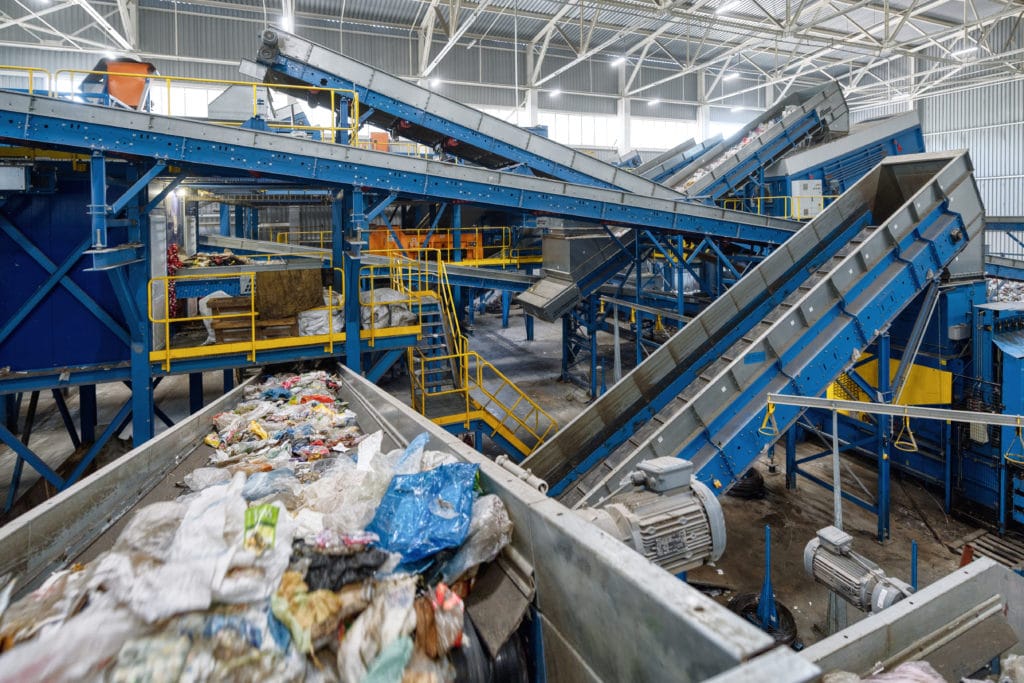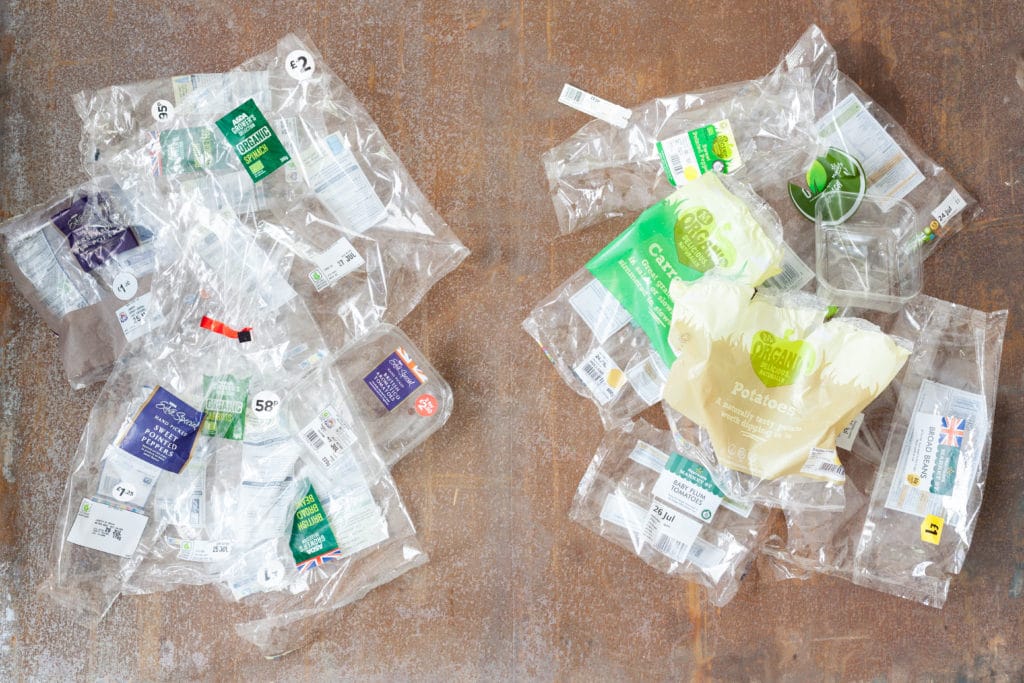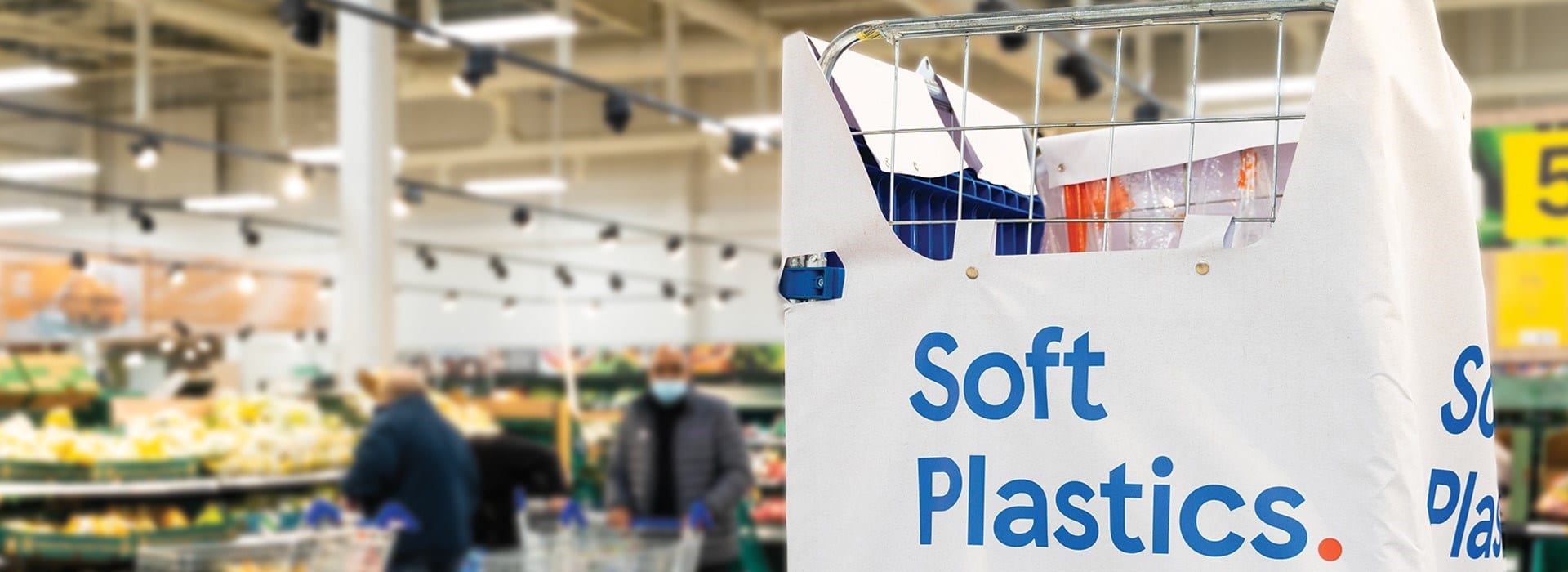When it comes to plastic packaging, the softer it is the harder it is to recycle.
That’s why just 17 per cent of local authorities currently collect biscuit wrappers, bread bags and salad bags, and only six per cent (18,660 tonnes) of the 311,000 tonnes of these flexible plastics ends up being recycled.
But these wrappers make up a fifth of all plastic packaging so supermarkets, under pressure from NGOs, stepped in to do something about it.
Led by Wrap – the charity behind the campaign and which fronts the voluntary Plastics Pact many supermarkets and food brands have signed up to – they began rolling out in-store collection points for all our wrappers.
There are now more 4,000 of these points across the UK. Tesco, which has 885 of them, says they “help to plug the gap in the country’s recycling infrastructure” and also “meet our customers’ ask that materials do not go to waste”.
But these schemes are not all they’re cracked up to be. Recent investigations have showed some of the waste being exported or burned. And now, research by Wicked Leeks and Ends Report can also reveal that only a tiny fraction is recycled back into food packaging, with most ending up as bin bags, buckets or in building materials.
We approached nine major supermarkets that have all launched in-store collection points to ask how much soft plastic they are collecting in stores, who is taking it, where it is going and how much is being recycled.
None provided complete transparency for their schemes. “People are trying to do the right thing by returning the plastic packaging to retailers but it’s unclear how much is actually being recycled,” says Kim Pratt, circular economy campaigner for Friends of the Earth Scotland, when she was presented with the results.

Iceland, a supermarket that claims to be at the forefront of ‘the war on plastic’, declined to comment; as did Aldi.
None of the others – Asda, Coop, Lidl, Morrisons, Sainsbury’s, Tesco and Waitrose –could say how much of the plastic being collected was recycled. Only two presented tonnage figures: Coop said it was collecting around 300 tonnes a year, while Sainsbury’s customers are currently bringing in 18 tonnes a month (around 216 tonnes annually).
Others said they were either working on the data or could not provide the information because the front-of-store collections were mixed with back-of-store flexible plastics. A Waitrose spokesperson apologised for appearing “evasive” in their response: “[…] we just don’t have specific figures to share yet but the aim is to recycle for reuse (and particularly for food grade packaging) as much as possible.”
Tesco is the only supermarket so far to have managed to produce ‘new’ plastic packaging from the ‘old’ wrappers its customers bring in. In late 2020, a trial used recycled soft plastics in packaging for cheese. Earlier this month the supermarket revealed that it has worked with Heinz and recycling companies to produce snap pots for beans that are also made from recycled soft plastics.
People are trying to do the right thing by returning the plastic packaging to retailers but it’s unclear how much is actually being recycled. Kim Pratt, Friends of the Earth
Despite repeated requests, Tesco wouldn’t divulge how much of the plastic being collected is being used for these food products. Tesco recently said 1,000 tonnes has been taken to recycling points so far and reports suggest 22 tonnes will be used in the Heinz trial (two per cent of the collected total).
Where can soft plastics go?
Soft plastics present far more technical challenges than things like trays or bottles (there are different polymers used in various combinations), plus the markets for the materials are less lucrative. This is why most of it will still end up as bin liners and bags for life, as do other materials recycled by supermarkets (things like buckets and construction materials). This is often referred to as ‘downcycling’ rather than closed loop recycling.
Some suggest this isn’t a problem – it’s at least diverting plastics from landfill or incinerators. There is a “fixation” that plastic has to be recycled back into the same thing it was originally – for example a crisp packet to a crisp packet – but there are “lots and lots of industries out there that want this plastic”, explains Haulwen Nicholas from Ceflex, a Europe-wide collaboration that’s trying to develop a circular economy for flexible packaging.

So far a lot of effort and expense has been spent to recycle soft plastics back into food wrappers. But is it worth it? The limited options so far also involve chemical recycling – a relatively new spectrum of technologies, some of which show potential to break the plastics down so they can be turned back into plastic for food packaging.
The Environmental Investigation Agency (EIA) is one of the groups treating the tech with caution. In June it published a new paper –The great UK soft plastics scandal – in which the supermarket collection schemes and chemical recycling were criticised in detail. The Flexible Plastic Fund, founded by Mars, Mondelez, Nestlé, PepsiCo and Unilever 12 months ago with an initial £1 million, was also panned for “facilitating the recycling of only a very small proportion of soft plastic packaging currently disposed of”.
Gareth Norton from Ecosurety, the compliance scheme running the fund, suggests the fund isn’t a failure – there just haven’t been any successes yet. Work continues to develop a fully transparent system but the “general secrecy” within the recycling chain has held things up. “Shining a light on this is a bit alien,” he says. “People are waking up to the fact that the provenance of recycling is becoming much more important – particularly for plastics.”
A glacial pace in recycling
But, as this research across the nine largest supermarket chains suggests, it’s a slow, painful process. The lack of transparency we found will only fuel concerns about what’s happening to the plastics that people are returning to stores in increasing amounts.
Creating systems that are entirely dependent on the public’s goodwill means that when things go wrong it could be the public that is blamed. Lauren Weir, Environment Investigation Agency
Calls for the government to honour its manifesto commitment to ban plastic waste exports to developing countries will certainly intensify; more UK infrastructure to treat plastic packaging is also desperately needed (investment is happening but not as quickly as it’s needed). Policies that penalise hard-to-recycle packaging are moving at a glacial pace, and the deadline for local authorities to collect flexible plastics is now 2027.
Lauren Weir at EIA is concerned that the buck will now be passed on to consumers. “Everyone has a role to play in tackling plastic pollution and ensuring more is recycled,” she explains, adding that creating systems that are entirely dependent on the public’s goodwill means that when things go wrong it could be the public that is blamed.
“Ultimately none of this actually limits the amount of plastic that can be put in the market,” she adds. “It’s within their [the food companies’] immediate interest to continue the status quo.”
Meanwhile Kim Pratt at Friends of the Earth has a final warning: “We are living in a plastics crisis and must do more.”
So don’t stop taking your packaging to stores, but do start asking more questions about what happens to it next.









This of course is where shopping with Riverford scores highly. Zero packaging box option and compostable or returnable plastics that won’t end up as pollution. Though I’m not sure about the cheeses yet…
Maybe we need a small box system albeit perhaps plastic or at least plastic lidded, but infinite number of use trips, akin to glass milk bottles. So your cheese/butter/houmous, even small meat items come in something like [BPA-free] Tupperware but that goes back again and again. Needs a truly detachable label system to go on top. Different colours to avoid meat going in boxes vegetarians or vegans would get on another trip.
It is pretty shocking to do a comparison- so rare to get berries in a punnet with no plastic.
Do you reckon plastic waste has slipped down the priorities post covid & cost of living crisis added to that?
Really pleased to see this article and find out more about what’s happening in the world away from my no packaging veg box. As ever, still so much to do but thanks for highlighting that there is some value in our weekly visit to the plastic drop off at our local store after collecting the contents so diligently.